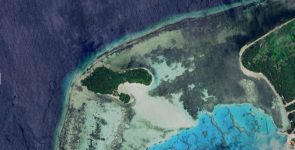As Maldives approaches a crucial parliamentary election, concerns have emerged regarding the potential use of government resources in campaign efforts. These concerns require careful consideration to ensure a fair and transparent electoral process.
Campaign Promises and Economic Fallout
The upcoming election has been characterized by a barrage of promises, with the incumbent government employing its resources in a bid to sway voters. From the construction of unnecessary airports to the development of ports in regions lacking economic viability, the campaign rhetoric has been thick with grandiose pledges aimed at capturing the imagination of the electorate.
However, the consequences of such short-sighted electoral tactics are not merely political; they reverberate deeply within the economic landscape of the Maldives. By diverting funds towards projects of dubious economic merit, the government risks squandering resources that could otherwise be allocated towards sustainable development initiatives, infrastructure improvements, and social welfare programs.
Rising Debt and Investor Confidence
One of the primary concerns stemming from this misuse of resources is the ballooning public debt. The financing of extravagant projects through loans and bonds places an immense burden on future generations, shackling them with the weight of fiscal irresponsibility. With limited revenue streams, the Maldivian government may find itself struggling to service its debt obligations, leading to austerity measures, cuts in essential services, and a stifling of economic growth.
Furthermore, the misallocation of resources towards vanity projects undermines investor confidence and hampers the attractiveness of the Maldives as a destination for foreign investment. Potential investors may perceive the government’s penchant for political patronage as a sign of instability and fiscal imprudence, deterring them from committing capital to projects that could drive sustainable economic development.
Environmental and Social Costs
The consequences extend beyond the realm of finance, casting a shadow over environmental sustainability and social equity. The construction of unnecessary infrastructure projects risks irreparable damage to fragile ecosystems, threatening the Maldives’ biodiversity and exacerbating the impacts of climate change. Moreover, the abrupt halting of projects initiated by the previous government risks disrupting continuity, leaving unfinished infrastructure to deteriorate and potentially leading to a loss of public trust in government initiatives.
The Path Forward
As the dust settles in the aftermath of the election, the Maldives finds itself at a crossroads. The electorate must hold its leaders accountable for their promises and demand transparency in the allocation of public resources. Civil society organizations, the media, and international partners also have a crucial role to play in monitoring the government’s actions and advocating for prudent economic management.
In the wake of the election, the government faces the daunting task of reconciling electoral rhetoric with economic reality. It must chart a course towards fiscal responsibility, prioritizing investments that yield tangible benefits for the nation’s populace while safeguarding its natural heritage for future generations. Only through sound economic governance and a commitment to sustainable development can the Maldives navigate the choppy waters ahead and steer towards a brighter, more prosperous future.


















